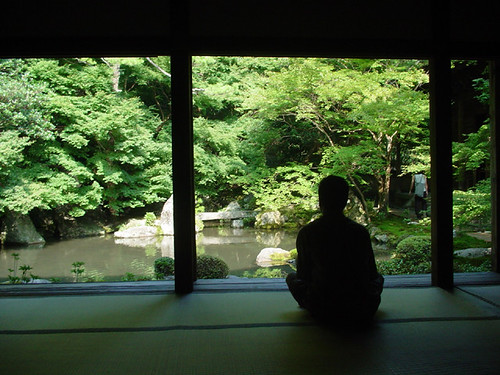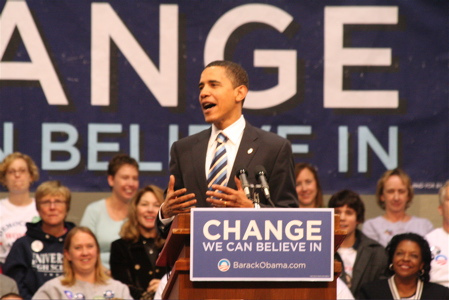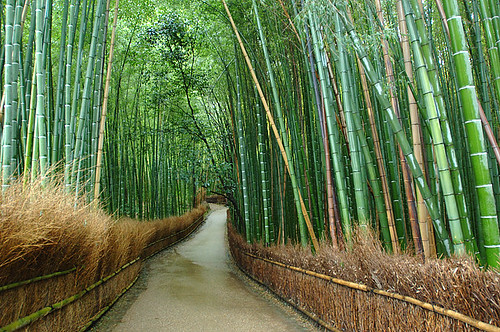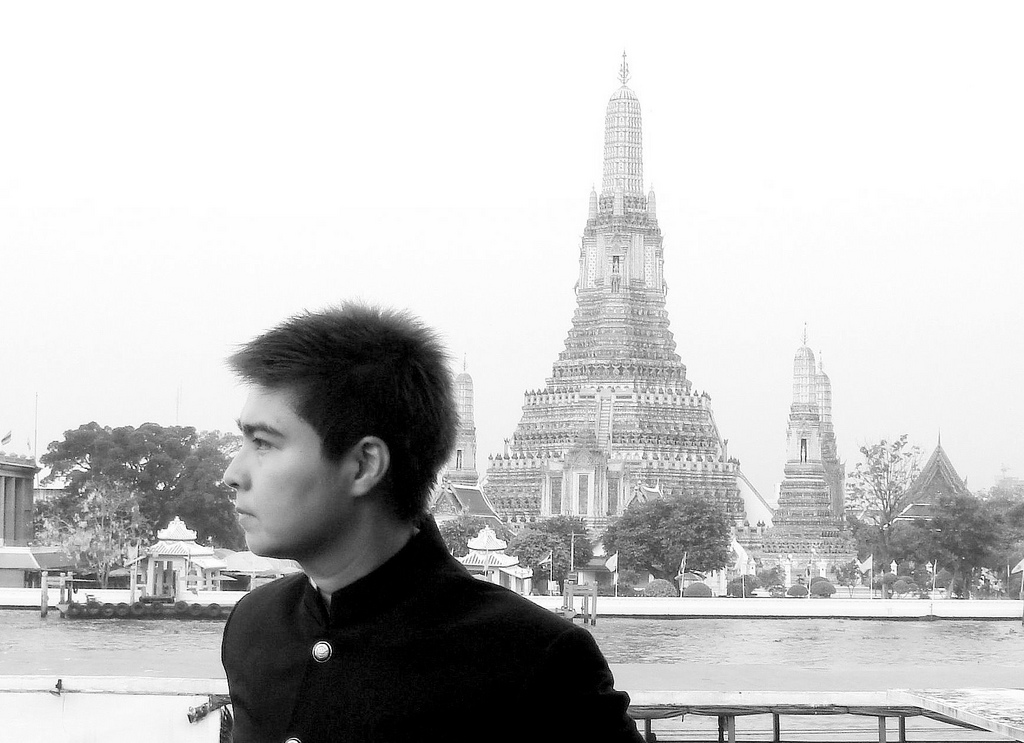(Bangkok Post's Real Time's Cover Story, November 21, 2008)
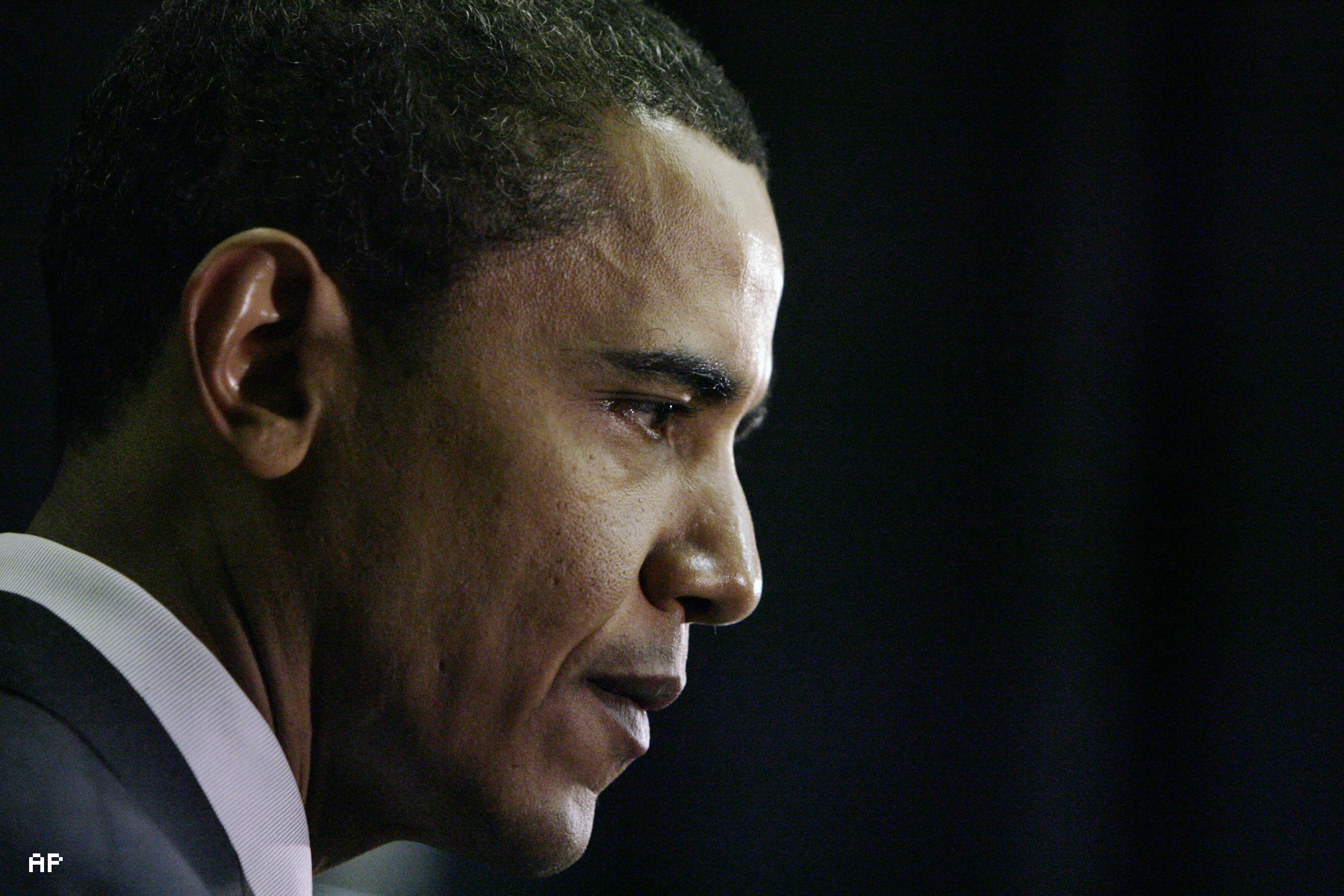
Photo from http://i.cdn.turner.com/cnn/2008/images/05/02/art.obama.headshot.jpg
Obama's Campaign in Buddhist Light
It is my belief that Barack Obama's successful presidential campaign, which was based on the concept of "change we can believe in," and its underlying message are synonymous with Buddhist self-transformation.
In Buddhism, people who are transformed become selfless and dedicated to serving others. This is what many people felt when they watched the broadcast of Obama giving his somber, determined victory speech in Chicago on election night.
Priceless Learning Opportunity, Politically or Otherwise
Something in the back of our minds said that we were witnessing history, and that we seemed to have arrived at the dawn of another chapter in a more principled humanity. In the candidate himself, there is a powerful lesson that we can learn from. It is not just for politicians who dream of running a successful campaign that results in a landslide victory; the lesson is equally valuable for the rest of us.
It would be ideal, though, if the world's politicians could learn the underlying message that Obama delivers, and the values that drove him and shaped his character.
Why the World Paid So Much Attention?
As we now know, the global following of Obama's campaign was unprecedented. The American press attributed it to their country's position as the leader of the consumer economy: whatever America decides, the repercussions will be felt by the world.
This is straightforward enough. In fact, Lord Buddha also taught that every being and phenomenon in this world is interconnected, hence the need for us to always have good will and act accordingly towards one another for continuous peaceful co-existence.
But in addition to that, a Buddhist view offers another explanation for the Obama phenomenon; it was not merely the result of economic dependence on America. For those who believe that what are important in this world are power and money, we beg you to consider the following facts and think again, as there are more profound things that Obama offers.
Let us first admit, there was something else about Obama that we were drawn to. And it was not just his charisma or his inspired oratory. What was it?
Mindful Candidate Always Stands out
Looking at Obama's historic campaign, what strikes us most is how consistently mindful this candidate has been. By mindfulness, Buddhism refers to the ability to be totally aware of the nature of things as they are, in the present moment, without pre-formed judgment or emotional partiality.
Obama, as we saw, was always able to remain calm and composed in any situation. He seemed to be able to always be mindful of his thoughts, his words and his deeds. At least he never lost his temper and showed hatred or anger like most politicians do in the midst of a tough political campaign. The only time he allowed himself to show his human side is only when he talked passionately about the well-being of his family.
Even when the political process got heated with the opponent's campaign throwing aggressive comments at him, Obama refused to retaliate in a similar manner. Repeatedly, he made it clear he would not take, in his own words, "the low road."
Mindfulness Leads to Clean Politics
By being constantly mindful, Obama was able to look at issues objectively. The result is a proof that human beings feel more comfortable with objectivity than with mud-slinging, name-calling politics. For example, Obama preferred to refer to the current problems in his country as resulting from "failed policies" rather than "failed individuals."
This brings to mind a Christian saying, "Hate the sin but love the sinner." Buddhism has a similar teaching which encourages us to address mental defilements as separate, conquerable entities from beings, who, in fact, suffer from unknowingly harbouring such defilements.
Obama also went out of his way to show his constant respect for fellow human beings, even when he has been the target of disappointing or harmful words and actions by some of them. In other words, we know that he values forgiveness and unity because he actually practices them.
Accepting the congratulatory phone call from McCain, Obama was able to say, "I need your help. You are such a great leader in many areas." Obama also praised McCain for waging such a tough campaign, and he did not lie: McCain did deliver a tough campaign, which probably forced Obama to try harder to sharpen his own thinking, coming up with even more thoughtful measures to better serve the public.
McCain must have felt exactly the same. McCain's sincere, heartfelt and gracious concession speech on election night, despite more than a year of gruelling campaigning as a political foe, is a testament to how Obama's mindful leadership and humility won over McCain's tough, war-veteran heart.
The greatest test of a true leader is perhaps the ability to find positive traits of one's foe and the courage to graciously mention them in public. And that was what Obama did on election night, "(Senator McCain) fought long and hard in this campaign, and he's fought even longer and harder for the country he loves. He has endured sacrifices for America that most of us cannot begin to imagine. We are better off for the service rendered by this brave and selfless leader."
Obama's Values in a Buddhist Perspective
Obama was able to achieve this formidable feat simply because he believed in the virtues and capability of every human. How could a politician achieve such an ethical mindset?
From a Buddhist point of view, it is because Obama has a firm grasp on the fundamentals of dhamma, the nature of things, as well as karma, the law of cause and effect of action. Obama himself stressed throughout his campaign that he himself was not perfect and that he expected to make mistakes as president. This is a fundamental understanding of human nature and of dhamma.
And how did he plan to address this common-man drawback? In Obama's own words: by being humble and listening to advice and criticism of others. "I will listen to you, especially when we disagree."
Humility, notably, is another admirable trait of this mindful candidate, stemming from his encompassing awareness of how things actually are. For example, in his victory speech, Obama appeared somber rather than self-satisfied, arrogant and triumphalist. He told the hyped-up Democrat crowd that they should accept this victory humbly, especially so because he simply followed the footsteps of one great Republican president, Abraham Lincoln.
That reference to Lincoln alone is enough to make people realize that what really matters is the shared humanitarian values and not antagonistic divisions along party lines.
Another important aspect we can learn from Obama's campaign is how he could inspire people. He could easily have taken advantage of the poor condition of the US economy to rev up the negative emotions of the crowd towards the current US administration, but he refused to do so.
Instead, he inspired people to sacrifice themselves, to do more together and for each other so that they all would be lifted out of this troubled time together, Democrats or otherwise.
This is the understanding of the law of karma. Everything in life is related to what we do now in the present moment. Lamenting and blaming each other for things past would not help us out of current suffering.
The American press also gave Obama lavish praise regarding his steadfast refusal to run a "negative campaign" against his opponents, even sometimes at his own cost. Lesson learned: mindful leaders who set their minds solely on the benefits of the people will sacrifice themselves and bravely sustain the low blows while continuing to hold on firmly, never losing sight of their original purpose. In short, it is selflessness.
Obama's call is not just idealistic, but an earnest call for action. By performing good deeds, good karma, together for society, Obama believes that good effects would naturally follow.
What breeds mindful leaders?
How could a relatively young presidential candidate have so much wisdom on life? A wisdom, we may add, that is usually associated with respected old sages. Looking at his formative years through a Buddhist lens, we understand why.
Despite growing up with a loving family, Obama has experienced hardship first-hand. There were times when his mother had to rely on food stamps to feed the family. Obama himself recalled in a voice stirred with emotion how she had to spend the last few months of her life studying health insurance forms to make sure her medical expenses were covered. This is why the young Obama was so driven to provide affordable healthcare to all.
Hardship, or, in Buddhist terms, suffering, apparently drove Obama to strive to work hard in all areas for those who are less privileged. He could have had a bright career in prestigious law firms of his choice given his educational and professional experience, but he chose to go into politics because he wanted to work for the benefit of others rather than for himself.
In Buddhism, understanding suffering is the first requirement towards acquiring wisdom. Having goodwill to all and living life to serve others mindfully is integral to Buddhist Enlightenment. In Thailand, HM the King exemplifies such virtues. Elsewhere, Mahatma Gandhi comes to mind.
Want to have that kind of Obama-like leadership? It's not beyond our human capacity. To be able to achieve this level of maha sati, Great Mindfulness, Buddhism prescribes vipassana practice with a detailed step-by-step guidance for anyone who cares to learn.
Mindful Leaders are Transformational Leaders
Academically, Obama's type of leadership is known as transformational leadership. It is when the leader and followers inspire each other to rise to a higher moral level by sacrificing themselves for society, for a cause higher than themselves.
In practice, transformational leaders are mindful people who transform themselves before going on to transform the life of others. By being constantly mindful, research shows that transformational leaders function better than other leadership models in time of change or crisis.
The author had the privilege of being at Harvard Law School at the same time as Barack Obama, although Obama was a year ahead and we were in different programmes. We might have occupied adjacent cubicles in the library or even taken the same international law classes together. Certainly, we went through similar "suffering" for a period of time.
Gruelling study aside, the author also recalled how classes were cancelled as students staged sit-in protests, demanding that a tenure position be given to an African-American female faculty. It was a cause Obama was known to support.
Although we do not have evidence if Obama indeed had some mindfulness training at Harvard Law, we do know that mindfulness meditation is now a regular fixture at the school. The initial workshop was so successful it has grown into a full-fledged programme called Harvard Negotiation Insight Initiative, aiming, among others, to train people to listen mindfully to others, which is doubtlessly the required basis of successful negotiations.
If a predominantly Christian country can incorporate this Buddhist wisdom into its top law school's curriculum and, in effect, producing great leaders, so can we. Yes, we can. (Sorry, couldn't resist it!)
Wakeup Call for World Leaders
It may seem incredible that a person with such a humble beginning as Obama could have made it this far. Yet, when looking through the lens of Buddhism, it should not come as a surprise. This is a mindful and humble candidate with a deep understanding of dhamma running a thoughtful and honourable campaign, encouraging people to be selfless and join forces to create good karma for the purpose of lifting others out of suffering.
It is precisely because of this that people all over the world were drawn to this campaign. It is not only about the economy, but also because the human mind responds naturally to inspiring virtue. The world cannot have enough of transformational leaders.
Mindfulness, non-aggression, the understanding of true nature of things, recognition of the Buddha-nature in every human and tangible, action-based selflessness for the benefit of others, the campaign could not have been more Zen-like than this.
What a Buddhist Country can Learn from an American President-Elect
As a Buddhist country, we should be happy to see mindfulness in action on a global scale, and Obama's embodiment of Buddhist values should be a powerful wakeup call to us. A mindful candidate can surely achieve great things for society.
This, inevitably, brings us to ask ourselves if this kind of clean, honorable campaign and mindful, selfless and focussed politician who enters politics to serve others is too much to ask for in a traditional Buddhist country like ours.
Where and how should we start? How about some wise words from Obama himself as quoted in Time magazine,
"We need to start over," he said, "speak gently, listen carefully, find solutions and keep our words."

Hillary Rodham Clinton and Barack Obama participated in a Compassion Forum. Photo: AP
Mindful advice is always context-free. Surely, Obama's insightful advice on how to work with people in solving problems can be applied everywhere and anywhere, not just to the current American political and economical mess. The answer depends on how soon we could say, "Yes, we can!"
To make sure we reach that day sooner than later, perhaps it would help to at least mindfully refrain ourselves from the usual politics of, "No, we can't!"
*************************
**Note** After this article appeared in The Bangkok Post, a thoughtful American reader who has moved to Thailand who goes by the name, "thaiexodus," kindly shared a thoughtful Zen koan with the author via email.
The gem of this wisdom is too valuable to be kept in private so the author has asked the permission to be shared with other readers.
Co-incidently, there is a photo from the official web site of Barack Obama that seems to go well with the koan, so the author took the liberty to include it together as follows.
Here is the koan:
"...All people are Buddhist, first and foremost, regardless of their professed religious beliefs..."
"But Barack Obama is a Christian of the Protestant faith!"
"Is it not the Buddha nature which causes a person to seek, and to embrace a religious philosophy?"

Photo from www.barackobama.com





